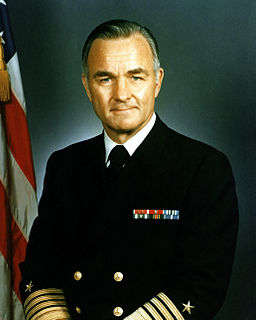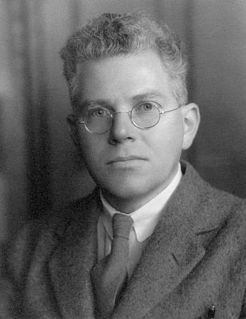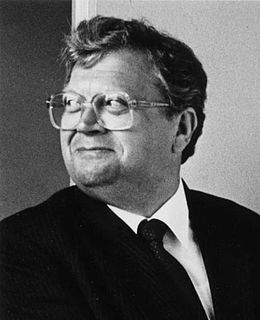A Quote by Stansfield Turner
As long as the two nuclear superpowers maintain arsenals in the tens of thousands of nuclear warheads, there is no way they can with any consistency urge that other nations not be allowed to acquire theses weapons.
Related Quotes
What is the only provocation that could bring about the use of nuclear weapons? Nuclear weapons. What is the priority target for nuclear weapons? Nuclear weapons. What is the only established defense against nuclear weapons? Nuclear weapons. How do we prevent the use of nuclear weapons? By threatening to use nuclear weapons. And we can't get rid of nuclear weapons, because of nuclear weapons. The intransigence, it seems, is a function of the weapons themselves.
There's no question that Saddam Hussein is a threat Yes, he has chemical and biological weapons. He's had those for a long time. But the United States right now is on a very much different defensive posture than we were before September 11th of 2001 He is, as far as we know, actively pursuing nuclear capabilities, though he doesn't have nuclear warheads yet. If he were to acquire nuclear weapons, I think our friends in the region would face greatly increased risks as would we.
We're fundamentally opposed to the expansion of nuclear-weapons arsenals. This is why we have proposed the formation of an unbiased organization and the disarmament of the nuclear powers. We don't need any weapons. We're a civilized, cultured people, and our history shows that we have never attacked another country.
One of the greatest concerns that I had when I became President was the vast array of nuclear weapons in the arsenals of the United States and the Soviet Union and a few other countries, and also the great proliferation of conventional weapons, non-nuclear weapons, particularly as a tremendous burden on the economies of developing or very poor countries.
I, who had been in favour of nuclear energy for generating electricity ... I suddenly realised that anybody who has a nuclear reactor can extract the plutonium from the reactor and make nuclear weapons, so that a country which has a nuclear reactor can, at any moment that it wants to, become a nuclear weapons power. And I, right from the beginning, have been terribly worried by the existence of nuclear weapons and very much against their use.
The worst part of what we heard Donald [trump] say has been about nuclear weapons. He has said repeatedly that he didn't care if other nations got nuclear weapons, Japan, South Korea, even Saudi Arabia. It has been the policy of the United States, Democrats and Republicans, to do everything we could to reduce the proliferation of nuclear weapons.
I don't want to use the term "nuclear weapons" because those people in Iran who have authority say they are not building nuclear weapons. I make an appeal to the countries who do have nuclear weapons. They don't consider them a nuclear threat. But let's say a country that doesn't have nuclear weapons gets involved in building them, then they are told by those that already have nuclear weapons that they oppose [such a development]. Where is the justice in that?
The cavalier casual way that Donald Trump talks about nuclear weapons is not only frightening but it goes counter to more than 70 years of bipartisan, presidential leadership of Republicans and Democrats who believed that we have to prevent other countries from getting nuclear weapons and we have to do what we can to decrease the number of nuclear weapons in the world.
Almost all of the governments have agreed that they will not acquire nuclear weapons and that they will allow the International Atomic Energy Agency to monitor their commercial and research nuclear power operations to ensure that nuclear materials - highly enriched uranium and plutonium - are not diverted to use in weapons.






























